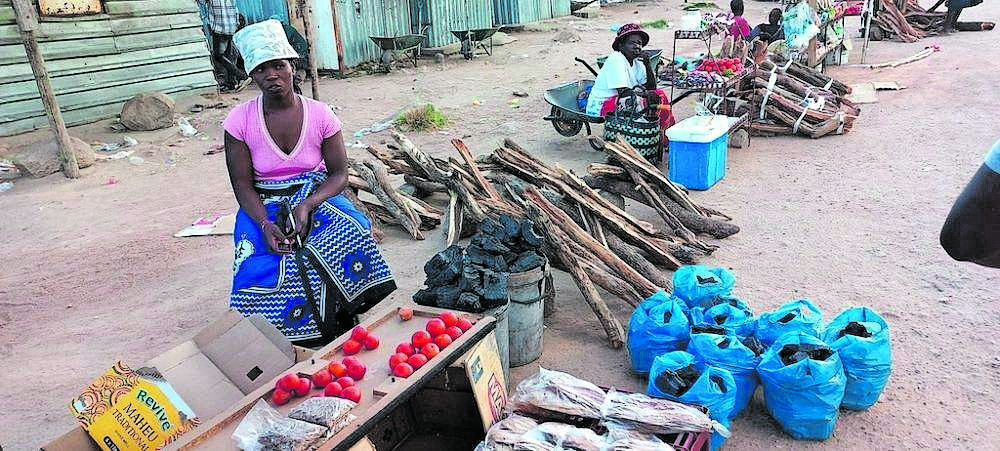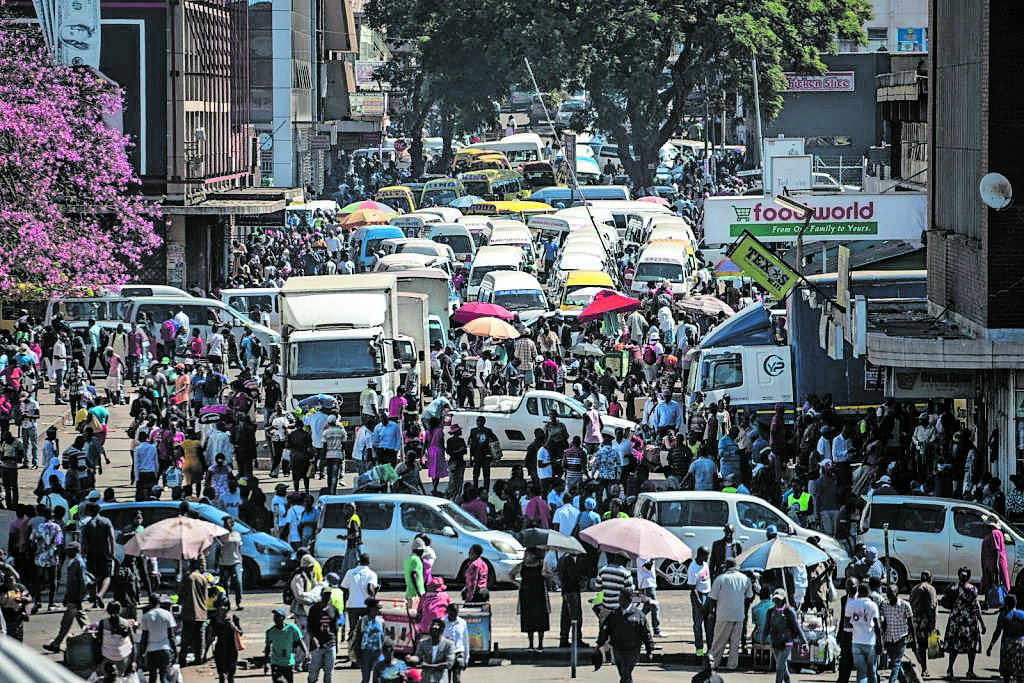In a fix: Services in the capital Harare are stretched or broken. Transfers of funds from the national government are low and revenue collection by local government is curtailed. (Mustafa Kamaci/Anadolu Agency/Getty Images)
Since 2017, Zimbabwe’s President Emmerson Mnangagwa has maintained a commission of inquiry into the operations and finances of the opposition-run City of Harare, the country’s capital and largest city.
For more than a decade, the Zanu-PF government has been locked in a power struggle with the Citizens’ Coalition for Change (CCC) over control of Harare. This political friction often results in the withholding of key financial support from the national fiscus and hinders collaboration on essential projects. In Zimbabwe, intergovernmental fiscal transfers remain relatively low at 4%.
Unlike Zambia, Angola and South Africa, where national and local governments generally cooperate, Zimbabwe’s political climate fosters antagonism between levels of government. Although legislation promotes the decentralisation of powers and functions to local government, Zanu-PF’s ideology has been centred on control of local government institutions using decentralisation as a façade.
As Bulawayo ward 5 councillor Dumisani Nkomo observes, no city in Zimbabwe operates with true devolution — local councils remain largely handheld by the ministry of local government.
Good Governance Africa has launched a project to profile African cities, beginning with those in the Southern African Development Community, to help develop an African city database and a City Development Index akin to the GGA’s Governance Performance Index in South Africa.
Harare is among the cities included in the African cities profiling initiative, and its financial reality is particularly striking. Harare has been governed by the opposition (Movement for Democratic Change, now CCC) since 2008, while the central government has been run by Zanu-PF since 1980.
Harare carries a high degree of service provision responsibility, with legislation devolving a wide range of key functions, including infrastructure-intensive services — water supply, sanitation, waste management, urban road infrastructure — and social services, notably healthcare and education.
The city’s healthcare system, managed by its health department, includes clinics and hospitals providing maternal and child health services, immunisations, outpatient care, and treatment for common illnesses. The city also runs municipal schools, mainly primary, and manages staffing, infrastructure and resources.
Globally, these services are typically funded through a blend of national transfers and local revenue. Unlike cities in other Southern African countries that get more from their national governments, Harare relies almost entirely on its own limited financial base and borrowing to finance service delivery. According to the city’s 2025 budget speech, the local government is expected to finance these services primarily through local revenue sources, such as property taxes, business licenses, and service fees.
But its revenue base has been weakened by the centralisation of some local revenue streams. For example, the national government has taken over the collection of vehicle licence fees through the Zimbabwe National Road Administration, limiting Harare’s ability to generate funds for road infrastructure projects. Further, Zimbabwe’s economic instability (high inflation and exchange rate volatility) often negatively affects the city’s financial capacity.
Internally, the council is facing major difficulties and has been ineffective in collecting revenue. It collected only 40% of its targeted revenue from January to September 2024, severely affecting its ability to deliver essential services. The council blames its revenue collection problems on the lack of an effective enterprise resource planning system, a digital platform which automates customer data, billing, payments and credit control. This shortfall reportedly costs the city US$70 million annually.
Extraordinarily, Harare City has retained a sufficient credit rating with lenders and has been able to borrow to fund infrastructure projects. But this has been resisted by Harare residents who, earlier this year, expressed outrage over the council’s proposal to borrow more than US$21 million to improve service delivery. They insist that the council must plug financial leaks before assuming more debt.
Harare mayor Jacob Mafume, appearing before the Justice Cheda-led Commission of Inquiry, has admitted to serious financial mismanagement at the local authority, including the unexplained disappearance of council properties.
The council continues to rely on outdated financial management systems, even storing financial records on memory sticks while top officials receive hefty salaries and perks at the expense of funding service delivery. The council is also facing crises because of its bloated workforce, which exceeds 10 000 and includes numerous duplicate jobs.
Harare’s constrained financial situation has often resulted in key service delivery issues both in formally established areas and informal settlements, which have proliferated on the city’s outskirts and where access to essential services is limited.
The city’s waste management system remains inadequate, with low fleet availability and rampant illegal waste dumping. In 2023, Mnangagwa declared a State of Disaster: Emergency Solid Waste Management, citing waste accumulation, rampant illegal disposal, littering and garbage being burnt. The city does not have funds to buy refuse compactors and trucks.
Road infrastructure has deteriorated significantly. In 2017, the late former president, Robert Mugabe, declared a state of disaster on Harare’s roads, and today, more than 87% of the city’s road network requires rehabilitation. The city aims to revamp 250km of roads annually over the next five years at an estimated cost of US$250 million a year, yet it struggles to secure funding.
Harare’s healthcare system fares no better. The city’s health facilities are overwhelmed by a growing population, with limited financial and human resources available to meet public health needs.

These service delivery problems are also associated with “unfunded mandates”, where local authorities are tasked with providing essential services without sufficient financial support. The central government may see unfunded mandates as a way to offload its policy responsibilities without paying the costs, which threatens the fiscal sustainability of local authorities and their capacity to deliver infrastructure and services.
Zimbabwe’s government must revisit its approach to urban financing. Increasing infrastructure grants and allowing Harare and other local authorities access to alternative funding mechanisms could help bridge the financial gap. Further, reducing political interference in municipal governance would enable a more constructive relationship between the Harare City Council and the national government and foster long-term urban development.
Taken together, Harare’s status as a devolved city with minimal national financial support places it in a precarious position. If Zimbabwe is serious about improving its capital city, it must rethink its approach to municipal finance and governance.
Nnaemeka Ohamadike is a senior data analyst and Ian Palmer is a senior research associate at Good Governance Africa.
Crédito: Link de origem


